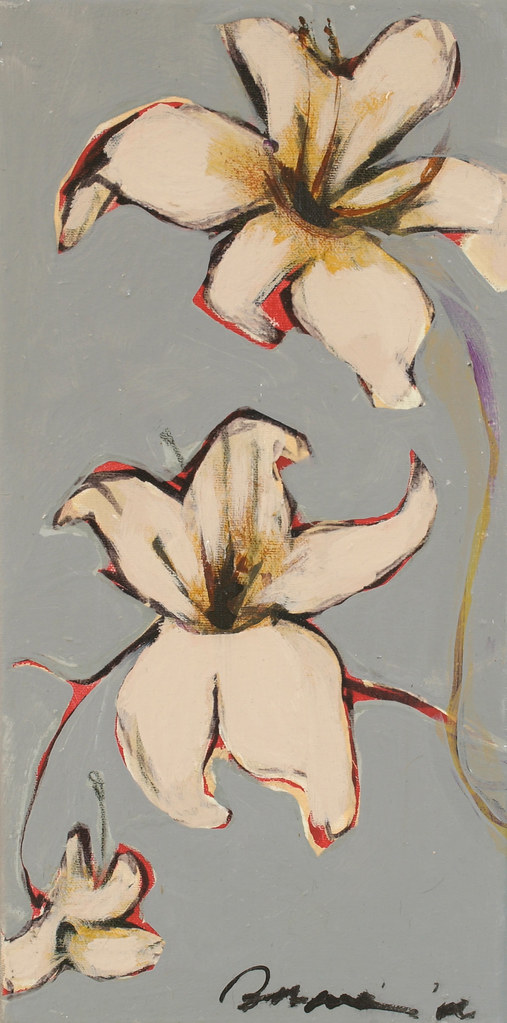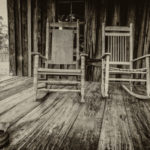During and after the 2020 pandemic, Maggie Smith’s poem “Good Bones” proved popular, at least online. The poem is told by a mother who is trying to “sell the world” to her children while also reckoning with the fact of the world’s brokenness, of life’s brevity, of evil’s ubiquity.
Smith’s repetition of the phrases “Life is short” and “though I keep this from my children” gives the poem a tone of anxiety and even a note of despair. She writes:
Life is short, though I keep this from my children.
Life is short, and I’ve shortened mine
in a thousand delicious, ill-advised ways,
a thousand deliciously ill-advised ways
I’ll keep from my children. The world is at least
fifty percent terrible, and that’s a conservative
estimate, though I keep this from my children.
For every bird there is a stone thrown at a bird.
For every loved child, a child broken, bagged,
sunk in a lake. Life is short and the world
is at least half terrible, and for every kind
stranger, there is one who would break you,
though I keep this from my children. I am trying
to sell them the world. Any decent realtor,
walking you through a real shithole, chirps on
about good bones: This place could be beautiful,
right? You could make this place beautiful.
I first read Smith’s poem when it was circulating on social media several years ago, and it has returned to my mind several times, especially in moments, like our current one, of cultural and political turmoil.
Poetry has a long history of giving voice to societal turmoil. This is evident from the work of Wilfred Owen, Claude McKay, Langston Hughes, Walt Whitman, and T.S. Eliot (at least in his early poems), along with many others. Famously, W.B. Yeats wrote in “The Second Coming,” which was written just after the end of the First World War, that “Things fall apart; the center cannot hold; / Mere anarchy is loosed upon the world.”
But one of the appeals of “Good Bones” is that it speaks to societal turmoil while also speaking personally. Smith is not speaking about things falling apart generally; she is instead speaking about her own children. Her language, as such, is close to home: we all want our children to believe that the world is a beautiful place. All parents feel the disparity between the tragedies that so often surround us and the hopes that we have for our children.
Smith’s words “For every loved child, a child broken, bagged, / sunk in a lake” are, in my opinion, particularly striking. Her words imply that the broken child could be hers, or yours. Evil is not so far away as we might think, or as we might wish to tell our children. And there are a million potential variations to her words that we could come up with depending on the most pressing troubles of our day: for every loved child, a child killed in utero. For every loved child, a child blown up by a bomb. For every loved child, a child whose innocent father was, like Charlie Kirk, murdered in cold blood, and then whose murder was celebrated.
There is a presupposition—or, at least, a hope—that courses beneath Smith’s words, however: that is, that the world is not merely a “real shithole” but has good bones. Smith’s hope does not recognize anything higher than the human plane, any power above the troubles and tragedies of life. Yet her hope—and even her despair—does resonate with a belief that is, in fact, very Christian: the world is not as it should be. Christians believe that the world is created good, has fallen, and yet retains traces of its original and to-be-restored goodness. The world has “good bones” to it because of God’s design and his common grace.
In the end, though, Smith’s hope is humanistic: it is you who “could make this place beautiful.” Such a hope sets much weight upon the shoulders of the frail human creature, who often finds that his own attempts at making something beautiful are fruitless, or are destroyed by those strangers “who would break you,” in Smith’s words.
Smith’s answer to the problem of pain demands more of us than any limited creature can fulfill. Hers is an existentialist, humanistic response to turmoil: noble, in a way, but also impossible and thus debilitating. We “could make this place beautiful,” she says. But how long before such man-made beauty would decay, be destroyed, or deemed ugly?
Contrast with Smith’s poem “Sabbath 1985: II” from Wendell Berry’s This Day: New and Collected Sabbath Poems. He uses the image of trees to envision a similar brokenness and despair to that which prompts Smith:
A gracious Sabbath stood here while they stood
Who gave our rest a haven.
Now fallen, they are given
To labor and distress.
These times we know much evil, little good
To steady us in faith
And comfort when our losses press
Hard on us, and we choose,
In panic or despair or both,
To keep what we will lose.
For we are fallen like the trees, our peace
Broken, and so we must
Love where we cannot trust,
Trust where we cannot know,
And must await the wayward-coming grace
That joins living and dead,
Taking us where we would not go–
Into the boundless dark.
When what was made has been unmade
The Maker comes to His work.
“These times we know much evil, little good” resonates with the same certainty of darkness that Smith’s poem declares in the repetition of “Life is short.” And both Smith and Berry’s poems end with language of “making.” But the two poems have few similarities beyond these.
Berry gives prescription where Smith only gives suggestion. Berry advises that we “must / Love where we cannot trust.” We must love, trust, and await grace—a grace that does not sweep us away from darkness but rather takes us into it. Berry seems to believe that hope truly blooms in the midst of darkness, for there, in the brokenness of “what has been unmade,” the Maker comes to restore, to recreate, to resurrect.
While Smith seems to believe that evil is out there, and that only by chance do we escape it, Berry suggests that evil is closer than we might think: we are those who are “fallen like the trees,” we are those who wrongly choose “to keep what we will lose.” While Smith says that you could make the world a beautiful place, Berry insists that you actually make the wrong choices “in panic or despair or both,” and that you ought to wait and trust, and then the divine Maker, God, will make the ugly beautiful again. You cannot do it; the Maker can.
I am reminded here of another pair of poems, much more directly linked although not directly addressing the evil and turmoil that Smith’s and Berry’s do: Rainer Maria Rilke’s “Archaic Torso of Apollo” and Ryan Wilson’s “In the Harvest Season.” Rilke famously insists at the end of his poem that, after experiencing beauty like that of a stone torso of Apollo, “You must change your life.” Wilson, writing a century later of the farmer in the season where “waiting’s all that will remain,” offers the opposite dictum: “You cannot change your life. Give up; give thanks.”
It is this charge, heralded both by Berry’s and Wilson’s work, to give up, to wait, to submit to something higher than oneself with gratitude, that can speak meaningfully in times like these.
Poetry like Berry’s gives the reader something to stand upon—something to kneel before.
The romanticism of Rilke is appealing but not finally true, as Wilson notices: you cannot change your life, at least not in the ways that ultimately matter. Likewise, poems like “Good Bones” only leave the reader with a mild sense of encouragement to, as the popular phrasing runs, “make the world a better place,” whereas poetry like Berry’s gives the reader something to stand upon—something to kneel before. Oddly enough, it is the poem that paints the human as incapable of major change—the poem whose call to action is to wait, not to make—that gives readers agency as recipients of necessary grace.
It is poetry like Berry’s that provides a tangible hope in the midst of societal or personal turmoil—poetry that recognizes human limits and divine grace, poetry that upholds faith and virtue as real and worthy of human pursuit.
Give up; give thanks; the Maker is coming to his work.
Image Credit: Series of Lilies via Flickr.






